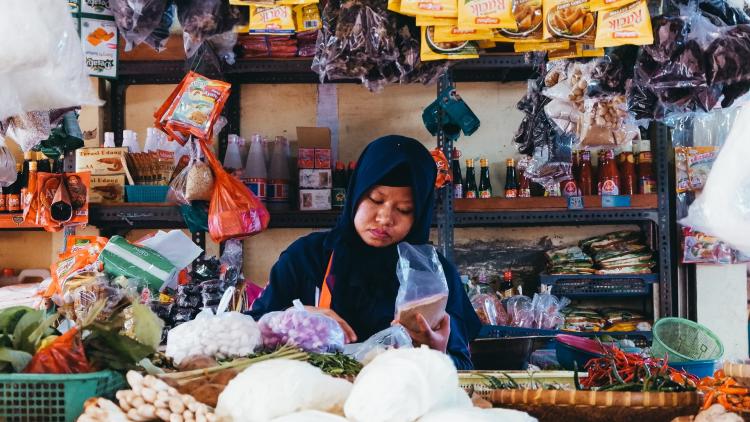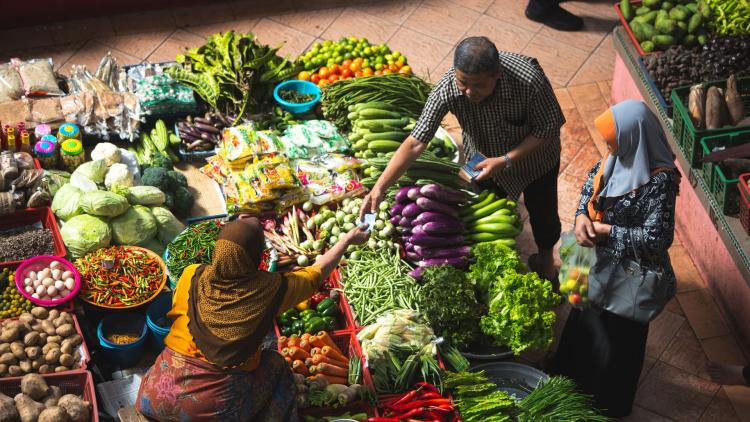Ten winners for case study development funding announced


The University Network for Strengthening Macro-financial Resilience to Climate and Environmental Change and the Resilience Adaptation Mainstreaming Program (RAMP) are pleased to announce the successful completion of their first funding round for case study research with the selection of ten winning bids.
The case studies will provide greater in-depth illustration and local context for four modules currently being finalised by the Network: adaptation finance; disaster risk finance; and climate budgeting and public financial management. Case study research will also be undertaken for modules the Network is creating in the near future, including: macroeconomic modelling and policy; fiscal policy; and economic and financial appraisal.
The ten winning case study bids are:
- Adaptation and mitigation options to the economy-wide effects of climate change in Uganda: An application of a dynamic CGE model (Makerere University). Researchers: Professor Edward Bbaale, Mr Asiimwe Wilson, Dr Albert Musisi.
- Catalysing change: Financing transformative adaptation to improve flood resilience in Bangladesh (Independent University Bangladesh). Researchers: Dr Ekhtekharul Islam, Professor Mizan Khan, Dr Meherun Ahmed, Dr Taslim Uddin, Ms Zaima Ahmed.
- Coordination of funding sources in disaster risk finance In Vietnam (University of Economics Ho Chi Minh City). Researchers: Dr Nguyen Thi Tuyet Nhung, Dr Nguyen Quang.
- Evaluating the effectiveness of integration of climate budgeting and allocation: A case of Bangladesh (Independent University Bangladesh). Researchers: Ms Zaima Ahmed, Dr Ekhtekharul Islam, Professor Mizan Khan, Dr Meherun Ahmed, Dr Taslim Uddin.
- Hand pollination of cocoa farms in Ghana: Cost and benefits analysis (Ghana Institute of Management and Public Administration). Researchers: Professor Wisdom Akpalu, Dr Francis Atsu, Dr Enam K. Antonio, Dr Richard Minkah.
- Quantifying the dividends of climate adaptation and resilience interventions: the case of the GARID project in Ghana (Ghana Institute of Management and Public Administration). Researchers: Professor Martin Morgan Tuuli, Professor Ebenezer Adaku, Professor Ebenezer Bugre Anarfo.
- Rising tides, sinking revenues: Vietnam’s fiscal policy amidst climate change (University of Economics Ho Chi Minh City). Researchers: Dr Tung Bui, Dr Hoai Bui.
- The Green Climate Fund: A case study of adaptation programs in sub-Saharan Africa (University of Nairobi). Researchers: Dr Laura Barasa, Dr Martine Oleche
- The impact of public investment on the conservation of Rau Reserve Forest: Cost benefit and multicriteria approach analyses (University of Dar Es Salaam). Researchers: Dr Stephen Kirama, Dr Martin Julius Chegere.
- The risk disaster management and financing in Tanzania (University of Dar Es Salaam). Researchers: Dr Martin Julius Chegere, Dr Stephen Kirama.
The University Network and RAMP secretariats congratulate all the winners. A call for applications for a second round of case study grants will be published soon.
About the University Network and RAMP
The University Network for Strengthening Macrofinancial Resilience to Climate and Environmental Change was established to promote multi-disciplinary academic teaching and research in areas important for strengthening macrofinancial resilience to climate change. The Network consists of global universities that seek to build capacities to carry out relevant high-quality teaching and research, and acts as a strategic and knowledge partner of major international organisations working in this field.
The University Network is a key part of the Resilience Adaptation Mainstreaming Program (RAMP). The objective of RAMP is to accelerate climate adaptation in developing countries by building capacity in ministries of finance, planning and economics to understand, plan for, and finance climate adaptation actions. RAMP is supported by a secretariat hosted by the World Resources Institute, working in close partnership with the Coalition of Finance Ministers for Climate Action, the Bretton Woods institutions, UNDP, regional development banks, and other stakeholders.


